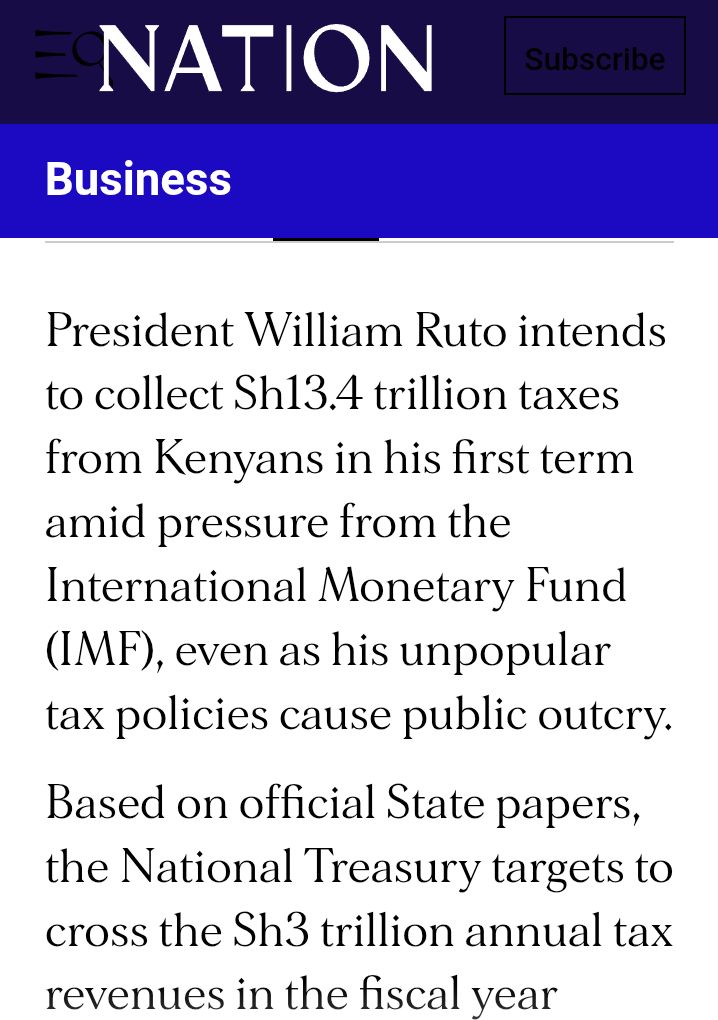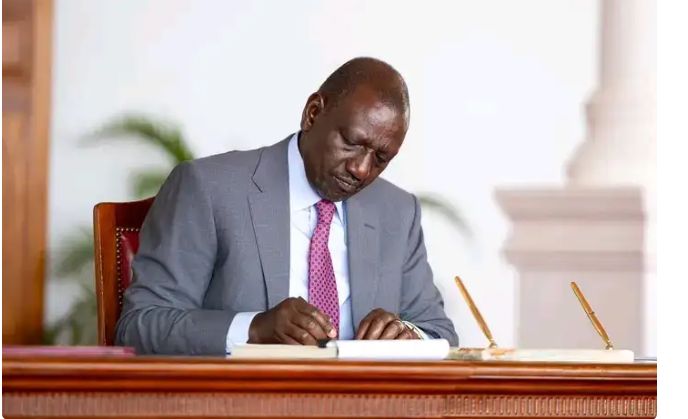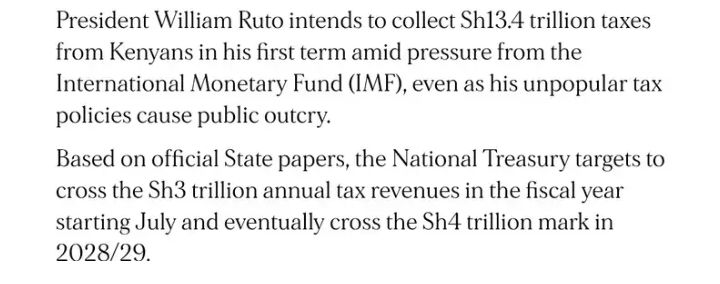In a report from Nation Africa Business, President William Ruto has unveiled an ambitious plan to raise Kenya’s tax revenue to KSh 13.4 trillion by the end of his first term in 2027.
The proposal aims to lift the tax-to-GDP ratio from the current 14% to between 20% and 25%, placing Kenya on par with other middle-income nations.

To achieve this, the Kenya Revenue Authority (KRA) is tasked with collecting KSh 2.57 trillion in the 2023/24 financial year, a 17% increase from the previous year’s target.
This aggressive tax policy has drawn criticism from various quarters, particularly due to the already dire economic conditions facing many Kenyans.
As highlighted in the Nation Africa Business report, the government’s efforts to broaden the tax base and improve compliance have sparked fears of financial strain, especially for low-income households.
Many argue that increasing taxes without a simultaneous boost in economic growth and public service delivery will only deepen the economic hardships experienced by ordinary citizens.
Public discontent is growing as more Kenyans feel the weight of these policies.
The high cost of living, already fueled by soaring food and fuel prices, is pushing families to the brink.


Critics have pointed out that the government’s promises of improved services and infrastructure are yet to materialize, leaving taxpayers questioning whether the increased revenue will genuinely benefit them.
This skepticism is further compounded by allegations of misuse of public funds and lack of transparency in handling national budgets.
President Ruto, however, insists that these tax reforms are essential for national development and debt management.
He has called for a partnership between the government and the public to ensure the success of the initiative.
Plans to leverage technology to enhance tax collection and reduce evasion are part of the strategy to achieve a more efficient and equitable system.
Yet, doubts remain about the administration’s ability to implement these measures transparently and effectively.
The push to expand the tax base also brings into question the government’s spending priorities.
For instance, while citizens are being asked to shoulder a heavier tax burden, there have been reports of excessive spending on non-essential projects and questionable procurement deals.
This disconnect has led to mounting frustrations, as many feel that their contributions are being wasted on corruption and mismanagement rather than addressing pressing issues like unemployment, healthcare, and education.
As Kenya embarks on this taxing journey, the balance between revenue generation and public welfare is precarious.
Public trust in Ruto’s government continues to erode as promises of economic transformation seem increasingly low.
The success of these reforms will depend not only on their technical execution but also on the administration’s willingness to address the underlying concerns of accountability, equity, and public welfare.
Without this, the ambitious goal of KSh 13.4 trillion may remain just another unfulfilled campaign promise, deepening mistrust and economic despair among Kenyans.


